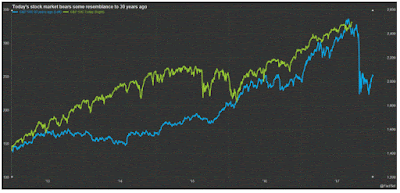Morneau Tax Policy Intended To Force Small Business Owners To Take On Greater Risk.
As managers of risk, we are a little concerned with an article in The Globe And Mail, where (with a new explanation) Fin Min Morneau outlined a reason for his new tax policy:
"Speaking to The Globe And Mail's editorial board Wednesday, the minister presented an entirely new argument in defence of the controversial tax package."
"Mr. Morneau said the ultimate goal of the changes is to correct an unintended aspect of the tax system that fails to encourage small-business owners to reinvest their corporate savings back into their companies."
Mr Morneau said that "We're actually giving the people incentive to sit the dead money on their balance sheet and invest it in something else", he said. "We've created a big gaping hole for tax planning and at the same time a decreased likelihood that people are going to invest in their business. That's what we are getting at here."
I would suggest, first and foremost, that small business owners know exactly how much they need to invest in their businesses for the growth that they wish to achieve and need not be coerced to invest (risk) more by the government.
Secondly, as a business owner builds her / his business, their security for the future depends on not having all of their "eggs in one basket" (i.e. "investing in something else"). In other words, financial success (and the ability to survive economic slowdowns) depends on the ability to have asset diversity (to be able to ride out the economic storm) and continue to operate without adding leverage or reducing their work force. That is lesson one in the management of risk.
This would be especially true as small-business owners approach their ultimate retirement, when it is even more essential to have a broad diversity of investments to carry them through the balance of their lives. They should not have to wait until they have sold their businesses to be able to build a comprehensive investment strategy.
Small-business owners take enough risk throughout their careers, they have made their contribution to the economic growth of this country. They deserve some respect for this, not derision for being somewhat and rightfully safety conscious.














